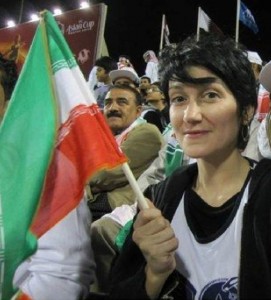Newsrooms Must Adopt “Innovation Culture” To Survive, Google Exec says
 Newspapers have long kept tabs on the changing world–but have themselves been slow to modernize. To flourish these days,
Newspapers have long kept tabs on the changing world–but have themselves been slow to modernize. To flourish these days,
when anyone with a computer can be a publisher, news organizations must develop a “culture of innovation. ”
So said Richard Gingras, the head of News Products at Google, on May 11, 2012 in a talk at Harvard’s Nieman Foundation.
Gingras, a founder of Salon.com and long-term media technologist , said “I push people to rethink every aspect of what they’re doing”–including their mission, ethical guidelines, how they interact with their audiences, transparency regarding sources, and even whether reporters divulge their personal political positions. In light of today’s powerful new technologies and human interactions, “innovation must be part of an organization’s DNA,” at the core of newspapers’ culture, and incorporated into “the role of every member of the team.”
Gingras pointed out that this by no means the first “disruption” time for the media. With the advent of television, for example, newspaper advertising declined and in some cities, the number of newspapers went from five to one or two. This was not great for the newspapers that went out of business and led to monopolitistic control by the survivors. But it also led to “40 golden years of profitability” for those survivors.
Today, the Internet has “disaggregated” the advertising economy., he said. No longer do consumers look to their local newspapers for car ads, for example: rather, they search the Internet for information and deals. “In the past, you could have an ad in the New York Times for Tiffany’s near an article on starvation in Darfur… or articles for garden centers in the Lifestyles section,” Gingras said. But on the Internet, such “vertical models” for advertising are not effective. ” Might news organizations’ Web sites do better as “a stable of focused brands with independent business models?” he asked.
Gingras also suggested that news organizations:
- Optimize news Web sites for multiple entry points, because individual story pages are, today, more valuable than first or home pages. These individual pages should be updated so that urls remain constant–thus optimizing search engine results.
- Include more “computational journalism”–in which reporters post interactive information tables that would allow readers to answer their own, individualized questions. For example, in a story on the state of education, provide tables showing student progress in school districts across the city–so that parents could assess statistics on their own children’s schools
- Leverage the assistance of “the trusted crowd” (interact with readers and keep them involved)
- Make reporters responsible for updating their own stories–with “constant” urls to encourage multiple visits to their pages
Gingras also said that in a culture of bulletpoints, updates and posts, there is low return on investment for long articles–and advised keeping articles under 500 words.
So I’ll quit here–at 494.
A video of the complete talk is posted at: http://www.nieman.harvard.edu/newsitem.aspx?id=100198
–Anita M. Harris
Anita Harris, a former national journalist and Nieman Fellow, is president of the Harris Communications Group, a marketing and communications firm located in Cambridge, MA.
